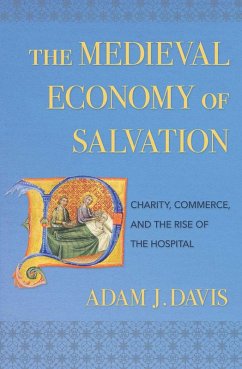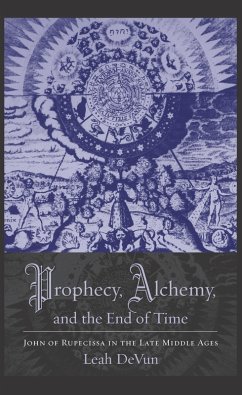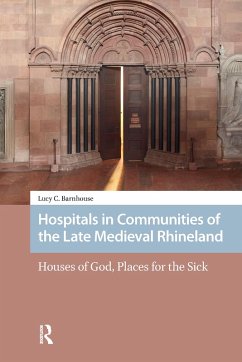
The Medieval Economy of Salvation (eBook, ePUB)
Charity, Commerce, and the Rise of the Hospital

PAYBACK Punkte
0 °P sammeln!
In The Medieval Economy of Salvation, Adam J. Davis shows how the burgeoning commercial economy of western Europe in the twelfth and thirteenth centuries, alongside an emerging culture of Christian charity, led to the establishment of hundreds of hospitals and leper houses. Focusing on the county of Champagne, he looks at the ways in which charitable organizations and individuals-townspeople, merchants, aristocrats, and ecclesiastics-saw in these new institutions a means of infusing charitable giving and service with new social significance and heightened expectations of spiritual rewards.In t...
In The Medieval Economy of Salvation, Adam J. Davis shows how the burgeoning commercial economy of western Europe in the twelfth and thirteenth centuries, alongside an emerging culture of Christian charity, led to the establishment of hundreds of hospitals and leper houses. Focusing on the county of Champagne, he looks at the ways in which charitable organizations and individuals-townspeople, merchants, aristocrats, and ecclesiastics-saw in these new institutions a means of infusing charitable giving and service with new social significance and heightened expectations of spiritual rewards.
In tracing the rise of the medieval hospital during a period of intense urbanization and the transition from a gift economy to a commercial one, Davis makes clear how embedded this charitable institution was in the wider social, cultural, religious, and economic fabric of medieval life.
Open Access edition funded by the National Endowment for the Humanities
In tracing the rise of the medieval hospital during a period of intense urbanization and the transition from a gift economy to a commercial one, Davis makes clear how embedded this charitable institution was in the wider social, cultural, religious, and economic fabric of medieval life.
Open Access edition funded by the National Endowment for the Humanities
Dieser Download kann aus rechtlichen Gründen nur mit Rechnungsadresse in A, D ausgeliefert werden.













